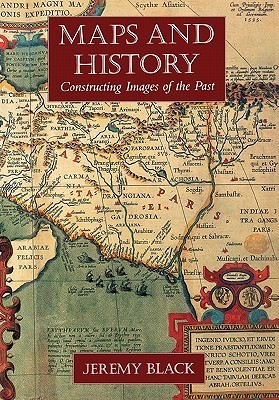
Historical atlases offer an understanding of the past that is invaluable to historians, not only because they convey a previous age's sense of space and distance but also because they reveal what historians and educators of those periods thought important to include or omit. This book―the first comprehensive and wide-ranging account of the historical atlas―explores the role, development, and nature of this important reference and discusses its impact on the presentation of the past. Jeremy Black begins with a consideration of the "pre-history" of the historical individual maps depicting the Holy Land at the time of Christ and maps of the classical world. He then examines the first known historical atlas, the Parergon of Abraham Ortel, which was published in Antwerp in 1579 and was followed by other works that mapped the world of the Bible and the classics. In the eighteenth century, there was a growing interest in mapping the post-Classical world, and works appeared that included maps of medieval Europe. In the nineteenth century, historical maps came increasingly to embody a clear political emphasis, mapping blocs of territory separated by clear linear frontiers and reflecting an approach to the past focused on undivided sovereignty and the development of the nation-state. In the twentieth century, historical atlases have both contributed to and responded to other ideologies, portraying peoples, languages, and cultural differences in an immediate and often striking visual form. Since 1945 the range of atlases has broadened to include maps devoted to the global environment, health, population trends, and other sociological, cultural, and economic changes. And the "liberation" of the Third World and the ending of the Cold War have stimulated a full scale re-mapping of the globe and the way it is perceived.
Author

Professor Jeremy Black MBE is an English historian and a Professor of History at the University of Exeter. He is a senior fellow at the Center for the Study of America and the West at the Foreign Policy Research Institute. He is the author of over 100 books, principally but not exclusively on 18th-century British politics and international relations, and has been described as "the most prolific historical scholar of our age". Black graduated from Queens' College, Cambridge with a starred first, and then undertook postgraduate work at St John's and Merton Colleges, Oxford. He taught at Durham University for 16 years from 1980 to 1996, firstly as a lecturer and then as a Professor. In 1996 he moved to Exeter University where he took up the post of Professor of History. He has lectured extensively in Australasia, Canada, Denmark, France, Germany, Italy and the U.S.. He was editor of Archives, the journal of the British Records Association, from 1989 to 2005. He has served on the Council of the British Records Association (1989–2005); the Council of the Royal Historical Society (1993–1996 and 1997–2000); and the Council of the List and Index Society (from 1997). He has sat on the editorial boards of History Today, International History Review, Journal of Military History, Media History and the Journal of the Royal United Services Institute (now the RUSI Journal). He is an advisory fellow of the Barsanti Military History Center at the University of North Texas. He was awarded an MBE in 2000 for services to stamp design, as advisor to the Royal Mail from 1997.